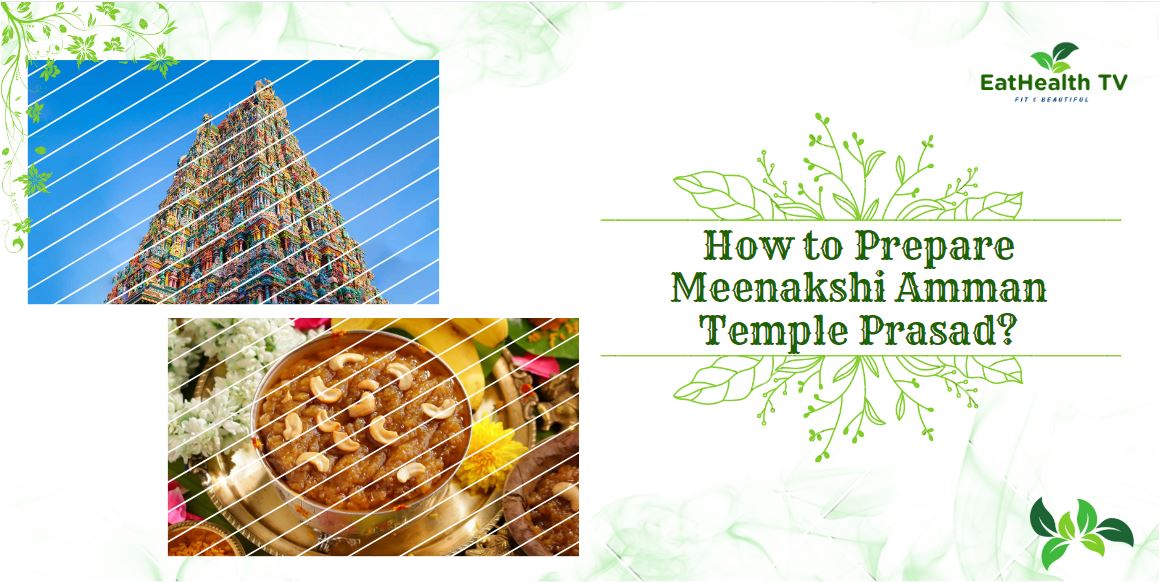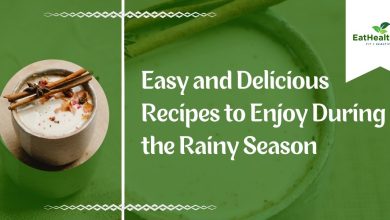How to Prepare Meenakshi Amman Temple Prasad?
A Divine Feast: Crafting Meenakshi Temple's Sacred Gudannam and Nei Pongal Prasad

Crafting Meenakshi Amman Temple Prasad – Gudannam or Nei Pongal
In the heart of Madurai, Tamil Nadu, stands the resplendent Meenakshi Amman Temple, a symbol of cultural richness and spiritual significance. Amidst the sacred rituals performed at this revered temple, the offering of Gudannam or Nei Pongal to the deity holds a special place. In this comprehensive guide, we will unravel the culinary secrets behind preparing this divine Meenakshi Temple Prasad, delving into its historical context, significance, and meticulous step-by-step process.
The Cultural Tapestry of Meenakshi Amman Temple
Meenakshi Amman Temple is not just an architectural marvel but a living testament to the cultural heritage of Tamil Nadu. With its intricate carvings, towering gopurams, and vibrant festivities, the temple attracts devotees and tourists alike. The rituals performed here, including the offering of Gudannam or Nei Pongal, contribute to the spiritual ambiance and cultural legacy.
Understanding the Significance of Gudannam or Nei Pongal
Gudannam or Nei Pongal, a sweet and savory rice dish, is a customary offering made to the goddess Meenakshi. The preparation and presentation of this Prasad symbolize purity, devotion, and the act of sharing one’s culinary bounty with the divine. As the aroma of the dish wafts through the temple corridors, it becomes a sensory expression of devotion and culinary artistry. Just as we know the importance of Baidyanath Temple Prasad
Ingredients for Gudannam or Nei Pongal
For the Sweet Version:
- Raw Rice: The base ingredient, representing purity and simplicity.
- Jaggery: A natural sweetener, symbolizing sweetness in life.
- Moong Dal (Split Green Gram): Adds a nutty flavor and a source of protein.
- Ghee (Clarified Butter): Enhances richness and imparts a divine aroma.
- Cardamom Powder: Infuses a fragrant and warm essence.
For the Savory Version:
- Raw Rice: Maintains consistency with the sweet version.
- Moong Dal (Split Green Gram): Provides a balanced texture.
- Ghee (Clarified Butter): Imparts richness and elevates the flavor.
- Black Pepper: Adds a hint of spice.
- Cumin Seeds: Enhances the savory notes.
Preparing Gudannam or Nei Pongal – The Divine Alchemy
For the Sweet Version:
- Cooking the Rice and Dal: Boil raw rice and moong dal until they are soft but not mushy.
- Jaggery Syrup: In a separate pan, melt jaggery in water to make a syrup, ensuring it blends seamlessly.
- Mixing Ingredients: Combine the cooked rice and dal with the jaggery syrup, adding cardamom powder and ghee. Mix thoroughly.
- Offering to the Deity: Present the sweet Gudannam to the goddess Meenakshi with utmost devotion.
For the Savory Version:
- Cooking Rice and Dal: Boil raw rice and moong dal until they are soft but retain their form.
- Tempering: In a separate pan, temper ghee with cumin seeds and black pepper. Add the boiled rice and dal mixture.
- Mixing Ingredients: Ensure the tempering coats the rice and dal evenly, enhancing the flavor and aroma.
- Offering to the Deity: Present the savory Nei Pongal to the goddess Meenakshi as a symbol of culinary devotion.
Meenakshi Amman Temple: The Spiritual Essence of Gudannam or Nei Pongal Offering
The act of preparing and offering Gudannam or Nei Pongal is not just a culinary ritual but a spiritual journey. Each ingredient symbolizes virtues like purity, sweetness, and balance, reflecting the devotee’s commitment to a harmonious life. The Prasad, once offered to the deity, is distributed among devotees, fostering a sense of community and shared blessings.
Conclusion
In conclusion, the preparation of Meenakshi Amman Temple Prasad – Gudannam or Nei Pongal – is a culinary art deeply rooted in tradition and spirituality. As the fragrance of the dish permeates the air of the Meenakshi Amman Temple, it becomes a testament to the devotion and culinary heritage of Tamil Nadu.
May the act of crafting Gudannam or Nei Pongal continue to be a revered tradition, connecting devotees with the divine through the art of cooking and sharing. As we partake in the sacred offering, may it symbolize not only a feast for the senses but a feast for the soul, fostering a deeper connection with the goddess Meenakshi.




